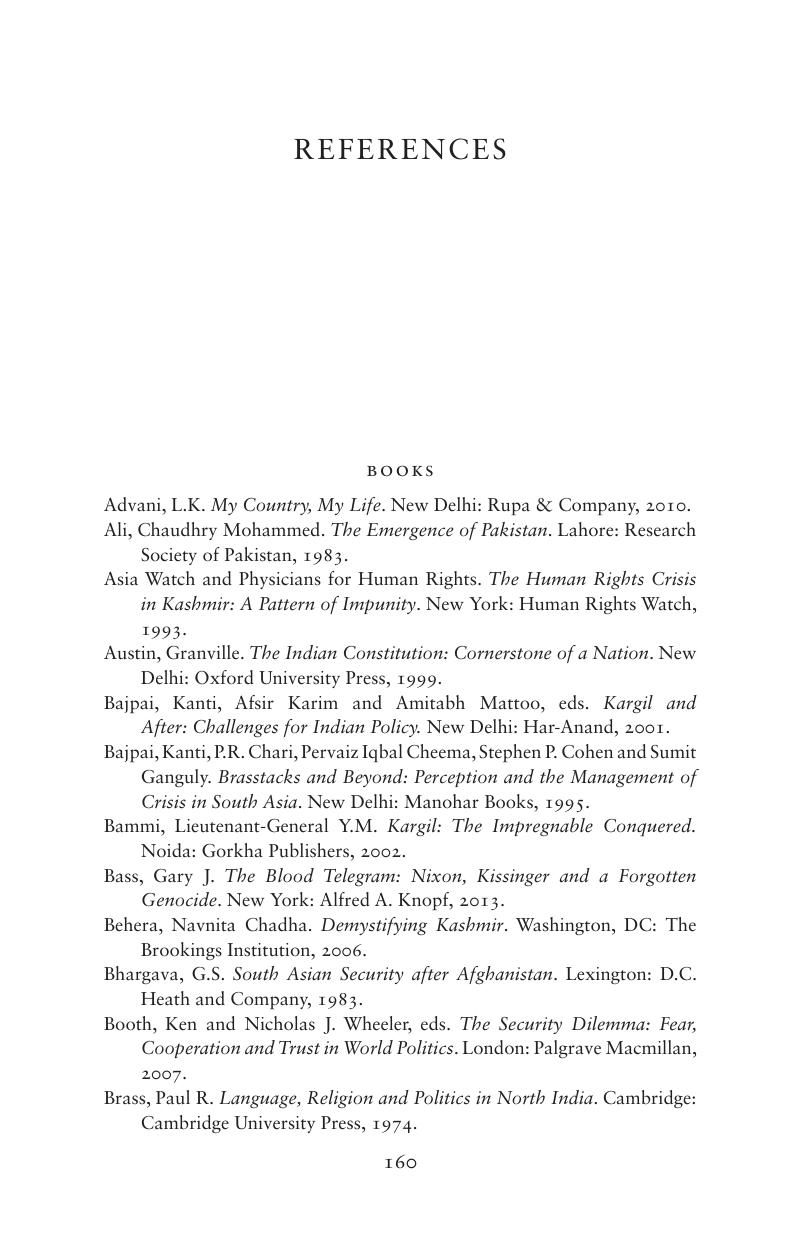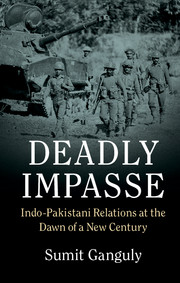Book contents
- Frontmatter
- Dedication
- Contents
- List of maps
- Preface and acknowledgments
- List of abbreviations
- 1 The rivalry revisited
- 2 Kargil and after
- 3 The troubled decade in Kashmir
- 4 The road to Operation Parakram
- 5 The composite dialogue and beyond
- 6 An extension of the rivalry
- 7 Policy implications
- In lieu of an epilogue
- Appendices
- References
- Index
- References
References
Published online by Cambridge University Press: 05 March 2016
- Frontmatter
- Dedication
- Contents
- List of maps
- Preface and acknowledgments
- List of abbreviations
- 1 The rivalry revisited
- 2 Kargil and after
- 3 The troubled decade in Kashmir
- 4 The road to Operation Parakram
- 5 The composite dialogue and beyond
- 6 An extension of the rivalry
- 7 Policy implications
- In lieu of an epilogue
- Appendices
- References
- Index
- References
Summary

- Type
- Chapter
- Information
- Deadly ImpasseIndo-Pakistani Relations at the Dawn of a New Century, pp. 160 - 170Publisher: Cambridge University PressPrint publication year: 2016

